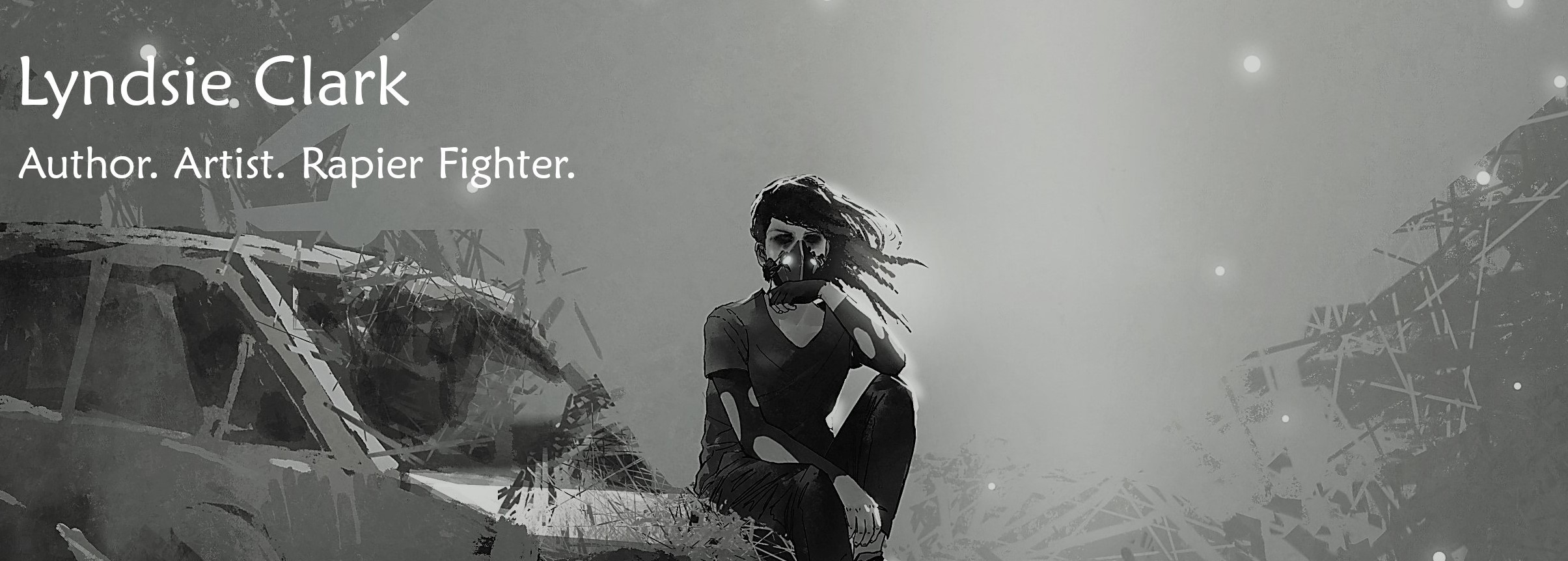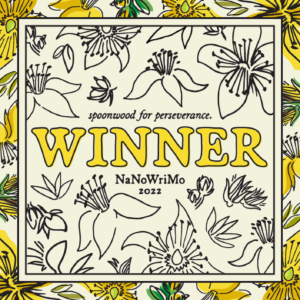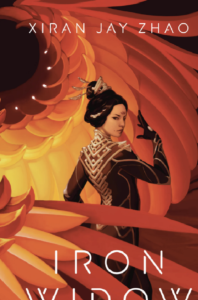As a writer, I find this whole AI art conflict very thought provoking.
If you don’t know what it is, here is a brief explanation. People have been jumping on this trend of generating art through programs/Apps like Lensa AI, MidJourney and many others that essentially take a bunch of existing pictures and smush them together based on a user’s key words to create a “unique” image. Here is one I generated of a futuristic gun.
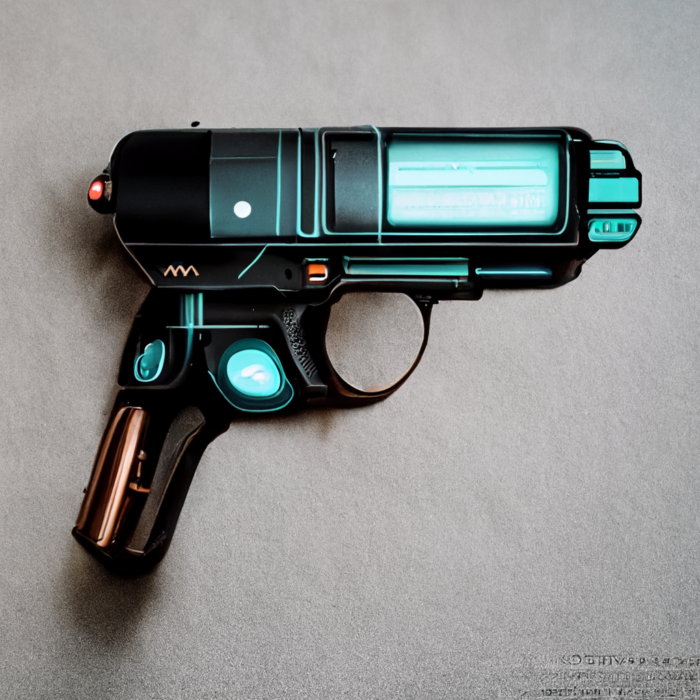
There is a lot of controversy around this “art form” because many human artists feel that it is not only taking work away from them, but in some cases blatantly stealing their work without their consent to use in its algorithm. Though, I don’t 100% know all the (il)legality of it, what I have read is a bit unsettling. For more information, there’s a great visual by an artist on his Facebook page: Juggertha – The Art of Ed Foychuck.
While I’ve never used Lensa (because I don’t want to give the AI my personal photos), I did use MidJourney for an exercise with my writing coach to generate settings and technology for my futuristic post-apocalyptic novel. The unfortunate part is that I got far better results for inspiration than when I did a Google search (I think because Google doesn’t do great with a ton of key words at once) and even from stock sites like Shutter Stock. So, something like this could really round out my mental images of my world and help me describe setting in ways I hadn’t originally thought of.
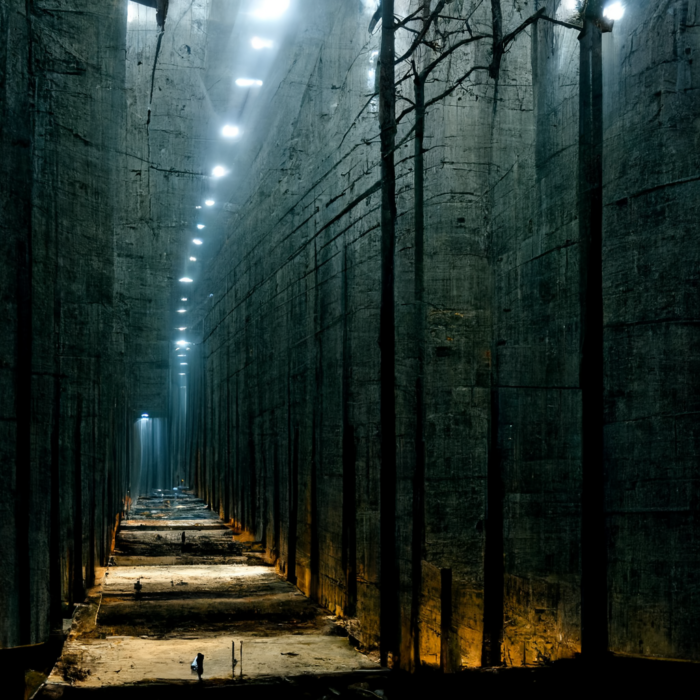
However, I personally had no idea how the AI art generator worked and assumed it was using public domain or stock pictures or something (more blatantly, I didn’t question it b/c I needed it…as is the way of the Internet). Though, according to other things I’ve read, not all apps (none?) are on the up-and-up like this and use sensitive content, illegal content, and directly just steal shit. So, that’s not great (sarcasm – it’s terrible).
In thinking about it in these terms, since I don’t want to give my personal data (i.e. my face) to a program for it and/or other people to use without crediting/paying me, I totally understand how artists are pissed at this happening to them. Having your shit stolen is a terrible feeling.
On the flip side, I’m a broke author who is trying to get published. I don’t have money to pay an artist to do concept art for every scene, setting, character, and piece of technology in my novel. I WISH I did, but that is just not practical for me right now. Hell, if I go the self-published route, I probably won’t be able to afford many artists’ price for just one piece. That’s the unfortunate reality and why a lot of self-pub authors go the stock photo route…but that’s a different topic.
For inspiration, I will say that seeing my world in visual is SUPER HELPFUL though and honestly keeps me going in my darkest holes of writer’s block. Drawing helps some, but I’m not that great of an artist and cannot record even half of what I visualize and then there’s the other half of that visual that I haven’t figured out yet. In the past, I’d do random Google and stock photo searches to get something *close but not exactly right* that still requires too much filling in of details.
MidJourney helped SO MUCJ with this. I still refer to those pictures when I am struggling to visualize. Also, the near-instant gratification part is a bonus. You put in keywords and 60-90 seconds later, you have pictures. So yes, a lot of appeal.
To be honest, every time I get stuck in writing or spend an hour doing an internet search is that much more time it will take to get my book finished, edited, and somehow published. And I can’t make money until I’m published. And even then, it may not be a lot of money. This is a catch 22 for sure.
Could I do the writing without generating AI visuals? Sure, though it would probably take me much more time rabbit-holing in Google searches. And I may never be satisfied. Would my story still be as good? Probably… So, do I need to use AI art? No. Do I like to? Yes. However, not at the expense of fellow artists.
This is the conflict: Get help to make the writing easier and potentially utilize stolen work or not support these companies and go back to my old ways. For the most part, I am in the camp of not supporting the theft of IP (intellectual property), so I probably won’t use these programs or maybe will but with extreme discretion unless I know they’re ethical.
I have a lot of thought on this topic, but to keep this post a manageable size, I’ll only go into 2 below.
1. AI art is not the same as an artist being inspired by another artist
This is something I feel very strongly about. I absolutely do not think that the AI art generation process is the same process as an artist being inspired by another’s work and painting in that same style with the same medium and the same content (for example). I can’t exactly explain why I think this, but I think it has to do with the difference between the human brain, the computer brain, and emotions.
On the one hand, a human painting/writing/drawing/singing like another artist still allows that human to consciously put their own spin on it. They are still creating with their own skills and independent mind. Whereas if an AI program took a piece of art from the internet, it’s directly using pieces of THAT ART in its own creation (pieces from the “physical (digital)” thing).
And honestly, I feel like this argument mostly comes from people who are not artists themselves. I don’t think they quite understand the difference between imitation and copycatting. For me, as an author, if another author was like, “I loved your stuff so much it inspired me to write X,” I would be very flattered because I have an emotional attachment to my work and to share that with someone makes my heart happy. Someone found it so inspiring that they intentionally and independently decided to create in a similar style. Author win!
Now, if that same author directly stole a bunch of concepts from my book and put them in their own, that’s a bit different and therein lies the line. Actually, another author friend, David Zindell, just talked about this on his page. It was regarding his novel The Lightstone, set in a world thathad a lot of elements similar to Harry Potter (including the lightning-shaped scar). However, a previous novel in the world had been published way before HP (He also noted that he did not know if J.K. Rowling had ever read his book though, so it could just be a coincidence). Yet, his editor wanted him to change a couple big things for this reason.
By the way, I highly recommend The Lightstone duology. Epic fantasy for the win! You can buy it on Amazon below.
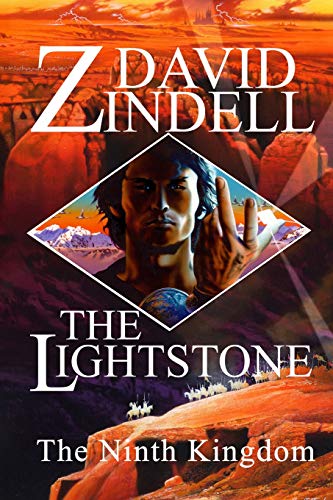
2. If you’re gonna make money from it, pay an artist
A lot of these apps have subscription price or one-time fee, in addition to their free tier, which gives you access to more images a month or additional features etc.. For instance, I paid $9.99 for a 1 month subscription of MidJourney (then cancelled after that). For my own research, this is like a service for my job (just like I pay for World Anvil or Scrivener) but honestly, I wouldn’t want to pay to license these images for money-making ventures (like marketing materials or book covers). Then I really feel like am taking work away from an artist and that just feels icky.
**RE: Stock photos. Many self-published authors use stock photos for book covers and the like. With these you can pay for a limited use image that you can modify or not. I am questioning this method too now because honestly, I don’t know how they pay their artists or what the artists’ contract is, so more research needed. The one difference between stock photos and AI art is that AI art is technically “one of a kind” whereas anyone can go onto a stock photo site and use the same image you’re using which runs the risk of someone having the same book cover as you (Ever looked at romance novel covers? They’re kinda like that…).
So, I would say that if you were actually going to use the art to directly make money then absolutely pay an artist rather than pay for licensing on those images. Yes, I know it’s expensive. I can’t afford it either. But, I would want to find a way and I hope others would do so as well.
In conclusion
We are living in the future eand AI technology is big right now. It’s not going away. There are “real people” behind AI art (i.e. programmers) who could be considered artists or at least designers in their own right. There are also artists who are trying to make a living. Just like sampling music, writing blog posts or fan fiction and taking part in an artistic movement, we need to understand where the line is.
Maybe the question to be asking is, where do we go from here?
Well, obviously, try to figure out a way to make AI art legal and allow artists to be in control of their own IP. Like, opting into it and allowing only their public domain stuff to be used. ALSO, finding a way to compensate the artists is a big deal, too.
I really don’t understand the technological backend of this kind of stuff, so I can’t provide great insights here, but I have heard that bitcoin/digital currency may actually be able to help with this by irrevocably indicating who owns the piece. So, something like that would be cool. I’d be more likely to use it for research purposes if I could guarantee all the art being sampled was legit.
Anyway, it’s a sucky conflict and just another example of how greedy people yet again screw over normal people who are just trying to get by. Support your local creatives, friends. They’ll love you for it.

